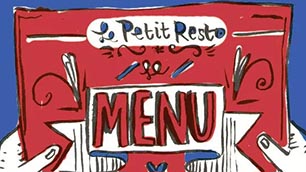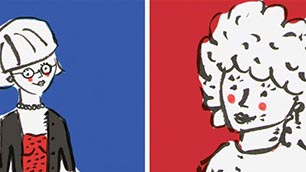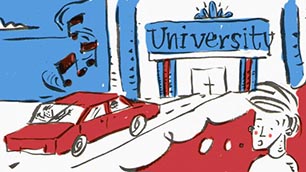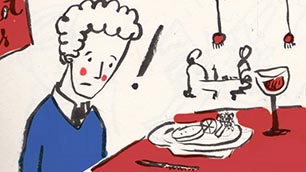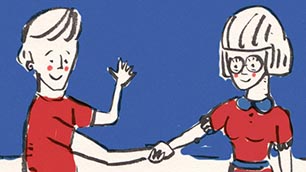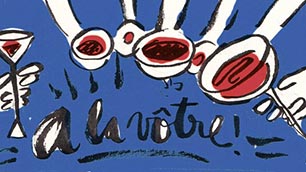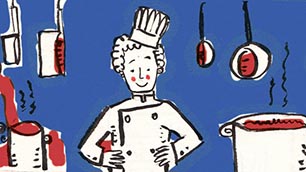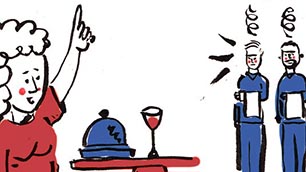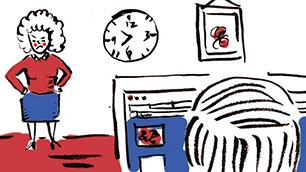DIRE (to say), LIRE (to read), ÉCRIRE (to write)
The irregular verbs dire, lire and écrire are very common verbs and have similar conjugations. Look carefully at the forms of these verbs in the present tense.
DIRE (to say)
DIRE (to say) | |
| je | dis |
| tu | dis |
| il/elle | dit |
| nous | disons |
| vous | dites |
| ils/elles | disent |
Examples:
| Les enfants disent la vérité. | The children say the truth. |
| Elle dit bonjour à son amie. | She says hello to her friend. |
| Je dis toujours ce que je pense. | I always say what I think. |
| Pourquoi tu dis cela ? | Why do you say that ? |
Dire means “to say” (to say something or to tell someone something) while parler means ‘to speak (to speak to someone about something or to speak a language). Dire is often used to start a phrase or to get someone’s attention.




